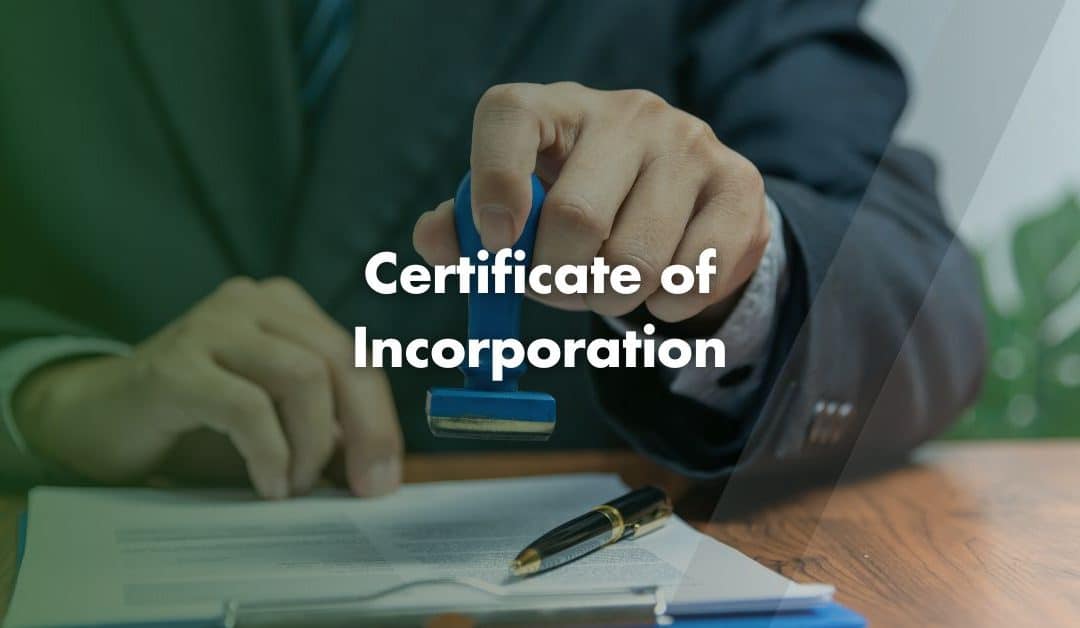A Certificate of Incorporation is one of the most important legal documents a business can possess. If you are setting up a limited company, you will receive this document as confirmation that your company officially exists and is recognisable by law.
Upon incorporation, your company becomes a separate legal entity that can trade and the certificate confirms this legal status.
What Information Does a Certificate of Incorporation Contain?
The Certificate of Incorporation is a short, one-page document. It contains details about your company, such as:
- The full company name you registered
- A unique Company Registration Number (CRN)
- The official date of incorporation
- The type of company (private limited, public limited)
- The jurisdiction (England and Wales, Scotland or Northern Ireland)
- The official authentication, either a digital seal or the Register of Companies’ signature
When Do You Receive a Certificate of Incorporation
You will receive your certificate after your company has been successfully registered with Companies House. If you complete the process online, the certificate is usually issued as a digital PDF within 24 hours. Paper applications take longer.
This document is automatically generated, so you do not need to request it separately.
What Do You Need to Incorporate a Company?
To receive your Certificate of Incorporation, you will need to:
- Choose a unique and legally compliant company name
- Appoint at least 1 company director
- Allocate shares and decide on the company’s structure
- Prepare a Memorandum and Articles of Association
- Register with Companies House either online or by post
- Pay the relevant incorporation fee (typically £50 online or £71 by post)
Once these steps are completed and your application is accepted, Companies House will add your company to the register and issue your certificate.
What About Name Changes?
If your business changes its name, Companies House does not issue a new original certificate. Instead, you receive a separate document known as a “Certificate of Incorporation on change of name”. This certificate includes:
- Your company registration number
- The old and new names
- The effective date of the name change
The Companies House register will still show your previous name under the “previous company names” section.
When You Might Need to Use Your Certificate of Incorporation?
You might not need your Certificate of Incorporation every day, but you will need it when:
- Opening a Business Bank Account
- Applying for Loans or Investments
- Registering for Taxes
- Entering into Contracts
- Trading Internationally
What If You Lose Your Certificate of Incorporation?
If you lose your Certificate of Incorporation, your business registration remains valid. When you do need a copy, replacing it is straightforward:
- If issued digitally, your certificate may be stored in your email or Companies House account
- Visit the Companies House website and use the “Find and update company information” tool
- Check the filing history by looking in the “Incorporation” section and select “View PDF” option
- You can print or save the file as needed
- If you need a certified version, you can order one by registering for a Companies House Service Account and providing payment
How Much Does a Copy Cost?
Standard PDF copies from Companies House are free to download. If you need a certified copy, Companies House charges around £15 for a standard postal order and £50 for a same-day service. Always check the Companies House website for the latest fees and delivery options.
Limited Companies vs Sole Traders
Only registered companies receive a Certificate of Incorporation. If you are trading as a sole trader, you do not need or get one. Instead, you must register with HMRC for Self Assessment. The certificate is unique to incorporated businesses and proves they are recognised as separate legal entities.
What is a Certified Certificate of Incorporation?
A certified certificate confirms that your company is legally incorporated and active. It includes:
- Your company’s name and number
- Date of incorporation
- Optional details like director names and registered address
- An official signature or seal from the Registrar
Certified certificates are often required for international business activities. Some foreign authorities may ask for this document to confirm that your company is legitimate and not facing any action to be removed from the register.
You can also request a Statement of Good Standing, but only if your company is up to date with its filings and meets all legal requirements.
Contact Us
We are not just accountants; we are Chartered Accountants with one of the most reputable and premium accounting bodies. We are registered and regulated by ACCA; so you can rest assured that you are in good hands. Knowing this, don’t hesitate to get in touch with us if you require assistance: Pi Accountancy | Contact Us
This article is for general informational purposes only and does not constitute legal or financial advice. While we aim to keep our content up to date and accurate, UK tax laws and regulations are subject to change. Please speak to an accountant or tax professional for advice tailored to your individual circumstances. Pi Accountancy accepts no responsibility for any issues arising from reliance on the information provided.

